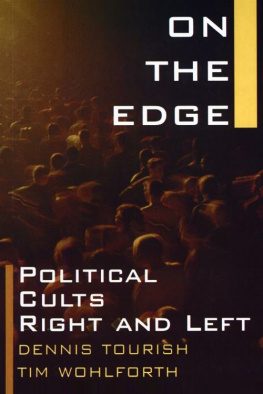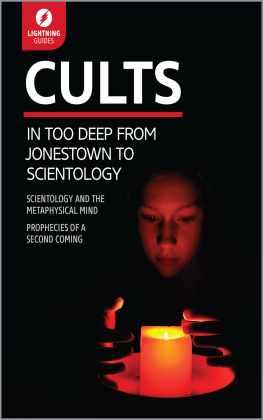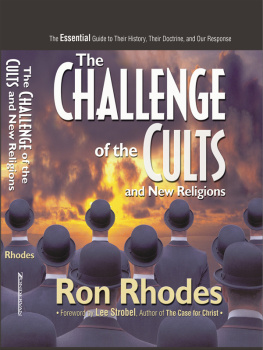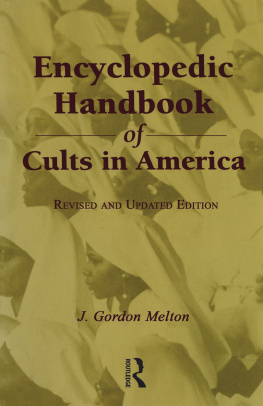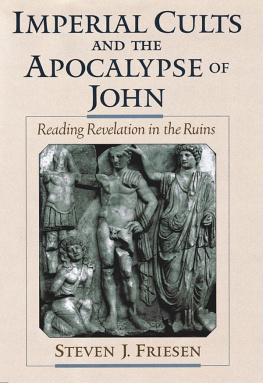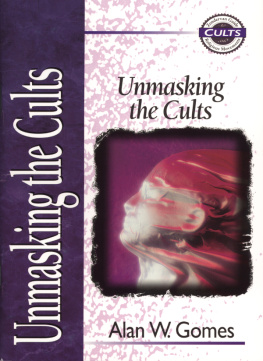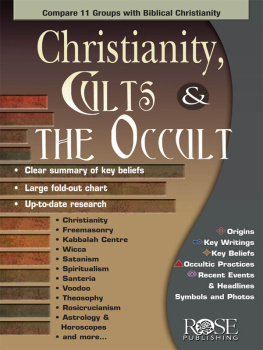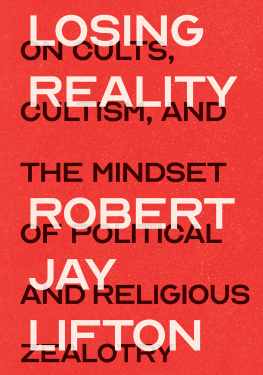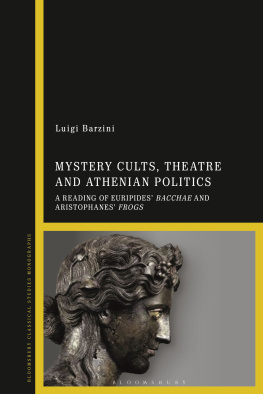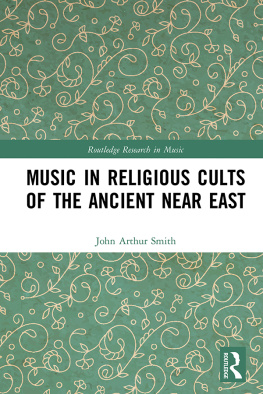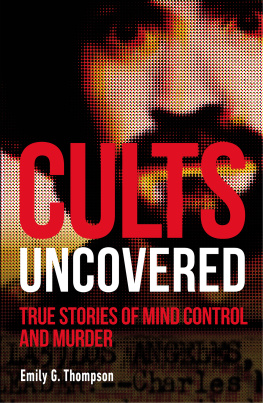ON THE EDGE
On the Edge
POLITICAL CULTS RIGHT AND LEFT
Dennis Tourish
Tim Wohlforth
First published 2000
by M.E. Sharpe
Published 2015
by Routledge
2 Park Square, Milton Park, Abingdon, Oxon OX14 4RN
711 Third Avenue, New York, NY, 10017, USA
Routledge is an imprint of the Taylor & Francis Group, an informa business
Copyright 2000, Taylor & Francis. All rights reserved.
No part of this book may be reprinted or reproduced or utilised in any form or by any electronic, mechanical, or other means, now known or hereafter invented, including photocopying and recording, or in any information storage or retrieval system, without permission in writing from the publishers.
Notices
No responsibility is assumed by the publisher for any injury and/or damage to persons or property as a matter of products liability, negligence or otherwise, or from any use of operation of any methods, products, instructions or ideas contained in the material herein.
Practitioners and researchers must always rely on their own experience and knowledge in evaluating and using any information, methods, compounds, or experiments described herein. In using such information or methods they should be mindful of their own safety and the safety of others, including parties for whom they have a professional responsibility.
Product or corporate names may be trademarks or registered trademarks, and are used only for identification and explanation without intent to infringe.
Library of Congress Cataloging-in-Publication Data
Tourish, Dennis.
On the edge: political cults right and left / Dennis Tourish and Tim Wohlforth.
p. cm.
Includes bibliographical references and index.
ISBN 0-7656-0639-9 (alk. paper)
1. Radicalism. 2. Social movements. 3. Politics and culture. 4. Cults. I. Wohlforth,
Tim. II. Title.
HN17.T69 2000
303.48'4dc21
00-024818
ISBN 13: 9780765606396 (hbk)
For Gemma Tourish and Joyce Gibrick, whose love and encouragement make everything possible.
Contents
We are grateful to many people who helped us with the production of this text. Janja Lalich played a critical role in the early stages of this project. She brought to it a broad knowledge of all varieties of cults as well as her own experience with Marlene Dixon's Democratic Workers Party. Alex Stein read portions of the manuscript at various stages and made invaluable suggestions. Scott McLemee was very encouraging as we began our research and, in addition, supplied important documents on the history of the Newman/ Fulani cult. Rick Ross maintains an excellent Internet archive on cultic and hate groups. It provided a much appreciated starting point to several of our investigations. Jeff Witnack and Irene Davison supplied considerable information and documents on the NATLFED cult.
Many people spoke to us informally and off the record about the groups profiled in the following pages. In many cases, they gave us access to documents not normally in the public domain, but which greatly enriched our understanding of political cults from the inside. We are grateful to them all for sharing with us their views, their experiences and, in many cases, their anguish.
Other people have provided us with intellectual and moral stimulation over the years, as we struggled in our own lives to make sense of the world around us and of the necessity but seeming impossibility of engaging in effective political action. They therefore contributed to this book in one way or another. These include Willie Breslin, John Throne, and Hilda McGrann. Robin Blick, Mark Jenkins, and the late Adam Westoby were among the first to point out the cultic nature of the Healy group and to encourage a look at the political cult phenomenon as a whole. Dave Hollis brought the two authors together via the internet and therefore made the final product possible. Their input, when both agreeing and, more important, disagreeing with us has always been educational.
We are also grateful to Peter Coveney, Esther Clarke, and Eileen Maass at M.E. Sharpe, and Georgia Kornbluth, the copyeditor, for their incisive editorial contribution in bringing this book to press.
None of the above necessarily share all or any of our conclusions and can in no way be held responsible for errors of fact or interpretation in the book that follows.
Dennis Tourish and Tim Wohlforth
June 2000
We believe that the practice of politics is vital to the health of a free society. Without a widespread commitment to participation in political life, democratic action would be impossible. However, across the world, people are more disillusioned with politics than ever before. Fewer and fewer can be bothered to vote, and fewer still to join established political parties. President Clinton was elected in 1992 with only 43 percent of the vote. Given that a mere 44 percent of the electorate voted, he assumed office with the support of only 23 percent of those eligible to vote. A bumper sticker, popular at the time, read: "If God had meant us to vote, He would have given us candidates."
Such quiescence is unhealthy for democracy, but there is another consequence, so far largely unexplored. It is that dysfunctional, damaging, and dangerous organizations have entered the political arena in search of money, recruits, and influence. We define such organizations as cults. They hurt those whom they recruit and inject the venom of hatred into the injured body of political discourse. Our book is an analysis of this phenomenon, a warning of its effects, and an argument for a renewed commitment to a balanced form of political activity on the part of many more people.
The Impact of Disillusionment
Most of us want to believe in something bigger than ourselves and to create a better world for our children: in short, to make a difference. We still have a need to believe in politics. Yet the mainstream parties are losing their appeal. In part, this is due to the rise of "centrist" politics, personified in the 1990s ascendancy of Bill Clinton and Tony Blair. Both have rushed to capture the "middle" ground, by moving their respective parties further to the right and away from their more radical traditions. One important effect has been to blend political differences into a succession of unappetizing souffles, in which every new dish tastes as bland as the last. The dividing line between left and right has been, at least temporarily, erased. Everyone now stands on the right, and all debate is conducted within ideological paradigms that reflect the priorities, beliefs, and prejudices of the right. More and more often, voters struggle to detect genuine differences between the choices presented to them in elections. The less substantial such differences are, the more politicians resort to ballyhoo, in order to camouflage the emptiness of what is offered. Official politics has been dumbed down to a mud wrestling match, complete with skimpy costumes, fake grunts, and simulated grudge matches. In the United States, party conventions now have more balloons than ideas.
Furthermore, the blurring of difference has coincided with the reemergence of desperate social and economic problems in every area of the globe. These conditions are a radical departure from those most people were brought up to expect. The conviction that one's children would be better off than you were has long defined the "American dream." In Western Europe, Australia, and New Zealand, welfare states were established in the postwar period, promising care from the cradle to the grave. People believed in a better future. Today, these hopes are fragile husks. The gap between rich and poor is wider than ever, job security has been vanquished, and unquestioning faith in society and its institutions has crumbled. These conditions create a fertile soil for the doomsday messages of totalitarian cults. Though cults are commonly assumed to exist only in terms of some well-known "religious" organizations, we argue that cultic forms of organization and belief have now begun to infect the realm of politics.

